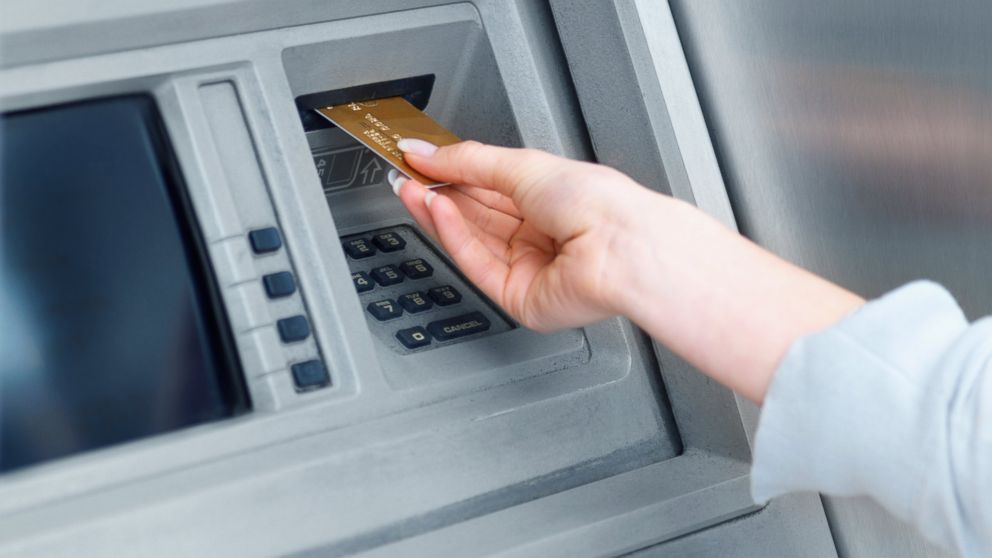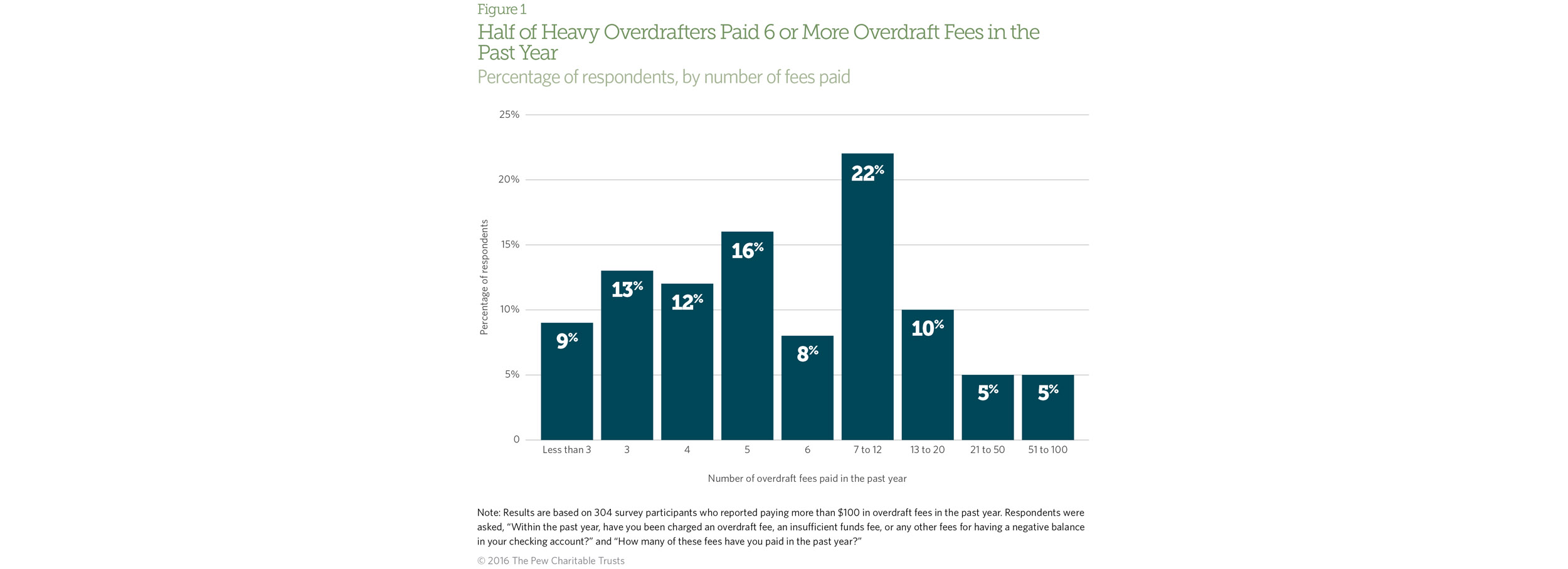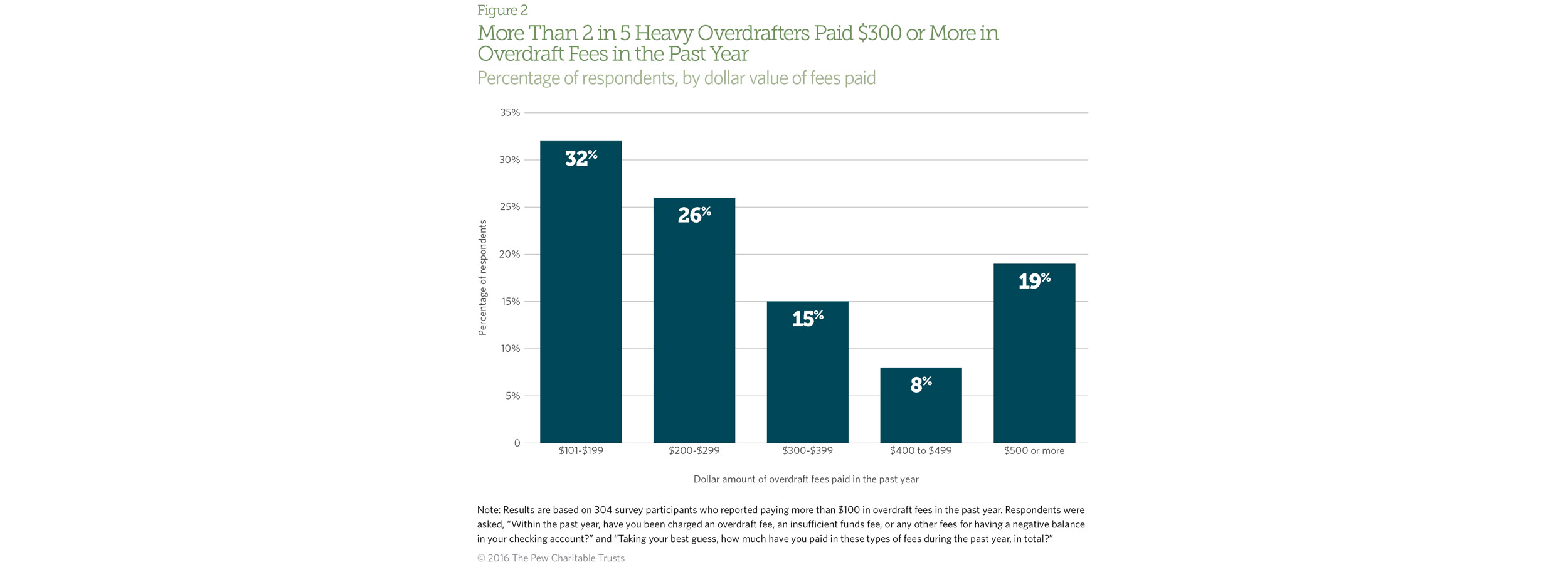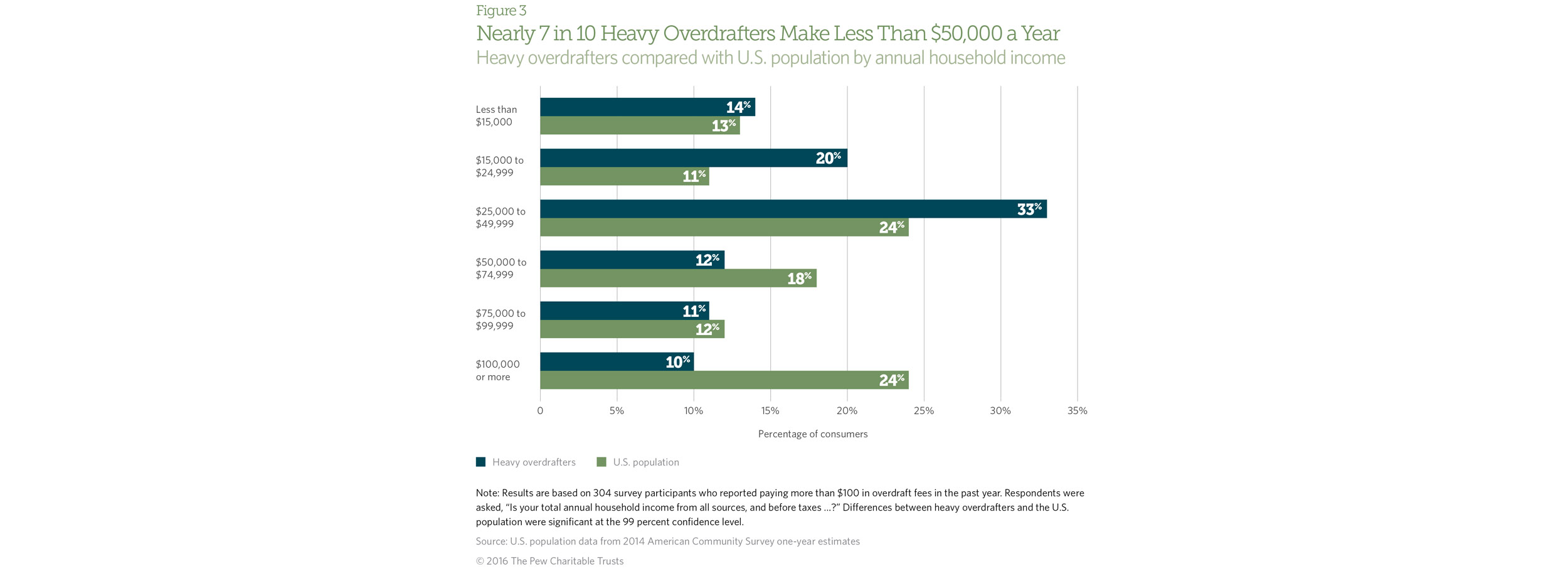Overdraft Fees Can Cause Financially Vulnerable to Leave Banks
A new study reported that $35 overdraft fees are heavy financial burden for some

— -- While occasional overdraft fees may be just an annoyance for some, they can cause the most financially vulnerable Americans to flat out leave the banking system, according to a new study by The Pew Charitable Trusts.
The 2014 survey described the circumstances of 302 “heavy overdrafters,” or those consumers who incur more than $100 in overdraft and insufficient funds fees per year, out of 8,461 people Pew interviewed by phone. With the typical overdraft fee at around $35, that's roughly three times a year.
"The heavy overdrafters we surveyed are very financially vulnerable," Susan Weinstock, The Pew Charitable Trusts' director, consumer banking project, told ABC News.
Nearly 70 percent of the "heavy overdrafters" earned less than the median annual income in the U.S., which is roughly $50,000. Meanwhile, a previous Pew study of 42 banks reported more than $2.4 billion in overdraft fee revenue for just the first half of 2015.
Pew’s research shows how much of a financial burden overdraft fees are for those who incur the charges frequently, Weinstock said. For these heavy overdrafters, the fees consumed nearly a week’s worth of their household incomes, on average, during the past year.

As a result, many of the lower income families who have experienced the fees simply choose not to have bank accounts. For those surveyed, about 31 percent of those without bank accounts confirmed that the high or unpredictable account fees were one of the reasons. Another 13 percent said it was the main reason. The effect of incurring the fees can also snowball because, according to a previous Pew study, most consumers do not learn about an overdraft fee for two or more days.
"The Consumer Financial Protection Bureau needs to enact new rules to limit the negative effects of these fees and ensure that overdraft is not being used as short-term credit," Weinstock said.

In addition to income, age and race also showed some link to the heavy overdrafters. Most of the the group were middle-aged and younger -- Millennials and Generation X.
As for race, heavy overdrafters had a slightly higher minority representation than the same groups have in the population. African-Americans comprise 12 percent of the U.S. population, but 19 percent of heavy overdrafters. Hispanics are 17 percent of the U.S. population, but another 19 percent of heavy overdrafters. Whites are 62 percent of the U.S. population, but 56 percent of heavy overdrafters.
Almost two-thirds of heavy overdrafters said they mostly use debit cards, which immediately deduct the money for transactions from their account balances, for purchases. With the median debit card purchase that incurred an overdraft fee hovering around $24, that translates to an interest rate of 17,000 percent.

Among Pew's recommendations to the CFPB: limiting banks to charging customers a maximum of six small overdraft fees in a 12-month period, not allowing banks to arrange the order of transactions in a way that would trigger the fees or more than one fee and making the amount of an overdraft fee a percentage of the transaction or, at least, proportional to what it actually costs the bank to cover the funds.
ABC News' Tom Shine contributed to this report.




